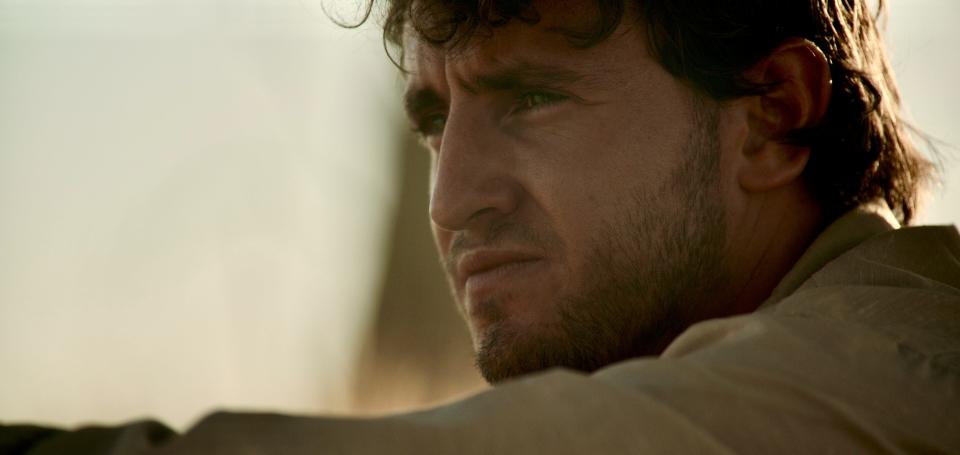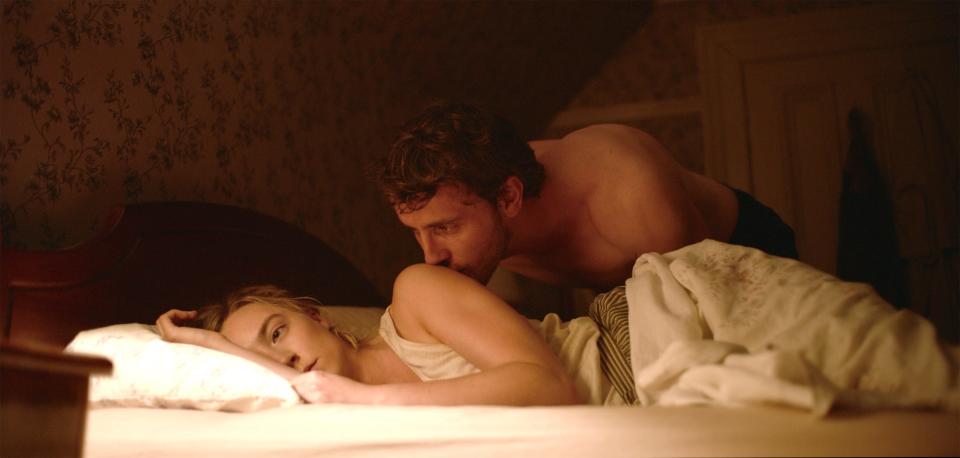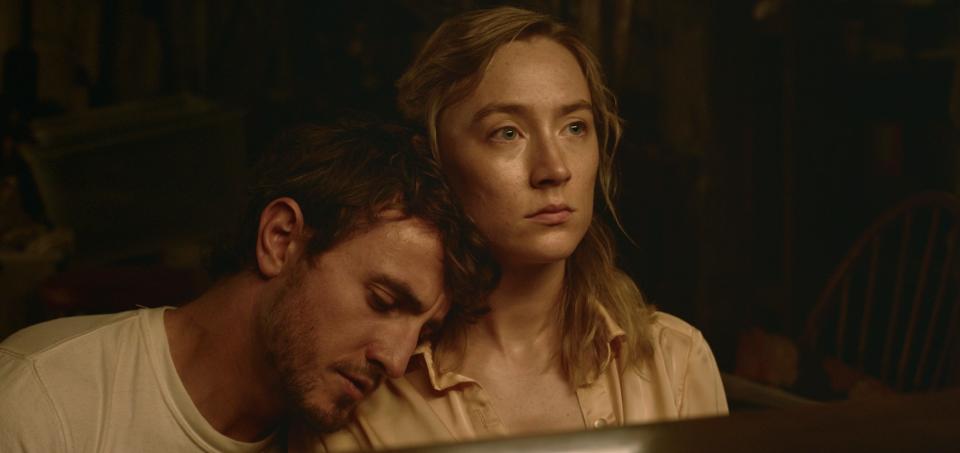Paul Mescal on that 'Foe' movie twist ending, why it's 'like 'Marriage Story' on steroids'
- Oops!Something went wrong.Please try again later.
- Oops!Something went wrong.Please try again later.
Spoiler alert! The following post contains details about the ending of "Foe" (now streaming on Prime Video).
Judging by its trailer, you might assume "Foe" is an action-packed dystopian thriller.
But the film (now streaming on Prime Video) is actually more reminiscent of a Tennessee Williams play, with its explosive dialogue, single location and small cast of just three actors. In other words, "it's right up my alley," says Oscar nominee Paul Mescal, who starred in a London production of Williams' "A Streetcar Named Desire" last year.
The story is set in a bleak near future, where climate change has ravaged the planet and the United States is sending people to space to test whether it's habitable. When Junior (Mescal) is selected for the experiment, a government official (Aaron Pierre) offers to give his wife, Hen (Saoirse Ronan), a robot replica of her husband to keep her company.
As his departure date nears, marital issues bubble to the surface. But in the movie's shocking finale, we discover that A.I. Junior has actually been with Hen this whole time, while real Junior has been in space. And when human Junior returns home, he callously looks on as his android counterpart is killed, feeling envious that the robot may have formed a more genuine connection with his wife.
Mescal, 27, unpacks the twist ending and more (edited and condensed for clarity).

Question: You shot "Foe" two years ago. Does this story feel even more relevant now, given all the concerns over A.I. in Hollywood and our daily lives?
Paul Mescal: It was in the cultural zeitgeist at that time, but given what this year was and the kind of impact it had on the industry, it feels quite timely. The film is about A.I. on the periphery and the impact that could potentially have emotionally on human beings. That’s personally what I love about the film in essence.
How challenging was it to play both real Junior and android Junior? Were there subtle or major ways you tried to make them distinct?
The calibration between both people was pretty clear in my mind. With returning Junior, there was obviously a physical thing to focus on, with the impact of gravity on his limbs. The challenge for me was just the size that I wanted to go with. It wasn’t like I chose for it to be a big performance, I was just like, “This poor guy is being gaslit for the entire film, and the version of the marriage that he believes in isn’t the reality.” His reality is very much under siege, and that kind of psychological pressure was really (difficult). One could argue that one of the most human parts of the film is the A.I. version of Junior.

Reading the script for the first time, what was your reaction to the twist?
I found the twist at the end really moving; I didn’t really see it coming. For me, the center of the film was like “Marriage Story” but on steroids. It was interesting getting to play those scenes with Saoirse, using (genre elements) to free up the tropes you see in relationship dramas. I know the film works for some people and it doesn’t for others, but I got to play a character that’s really quite different from what I’ve done before.
When you’re entering the third act, you’ve got that speech Junior has where he talks about his observation of the human race, and how disgusting and filthy it is. Really what he’s saying is that he’s lost and in a huge amount of pain, and he’s just trying to articulate that in a language he isn’t literate in. I can’t perceive what is successful or unsuccessful about my own performances, but that scene in particular is one that I’m really proud of. It was one where it was like, “I don’t know where this is going to go,” but it’s ultimately where I wanted it to land.

Had you met Saoirse prior to this project?
We met at a party one time. Irish actors look after each other, for the most part – we have a weird shorthand with each other. It’s impossible to quantify or articulate, but it just exists. Maybe it’s a similar sensibility or an absence of oversentimentality.
I understand you're both big rugby fans. Did you bond over that while shooting in Australia?
The rugby thing was actually a new thing for us. She’s a very important person in my life – I feel like we’ve known each other for much longer than we actually have. You hear stories of actors who reach a level of success, and then they (stop putting in work). But when we were approaching rehearsals, her enthusiasm was really refreshing – it could have looked like it was her very first job. She just went to town, and as a result of that, we became very close. And then the strike happened and the Rugby World Cup was on, so we just went to the pub, drank and watched rugby.
This article originally appeared on USA TODAY: 'Foe' movie Prime Video: Paul Mescal breaks down 'moving' twist ending

